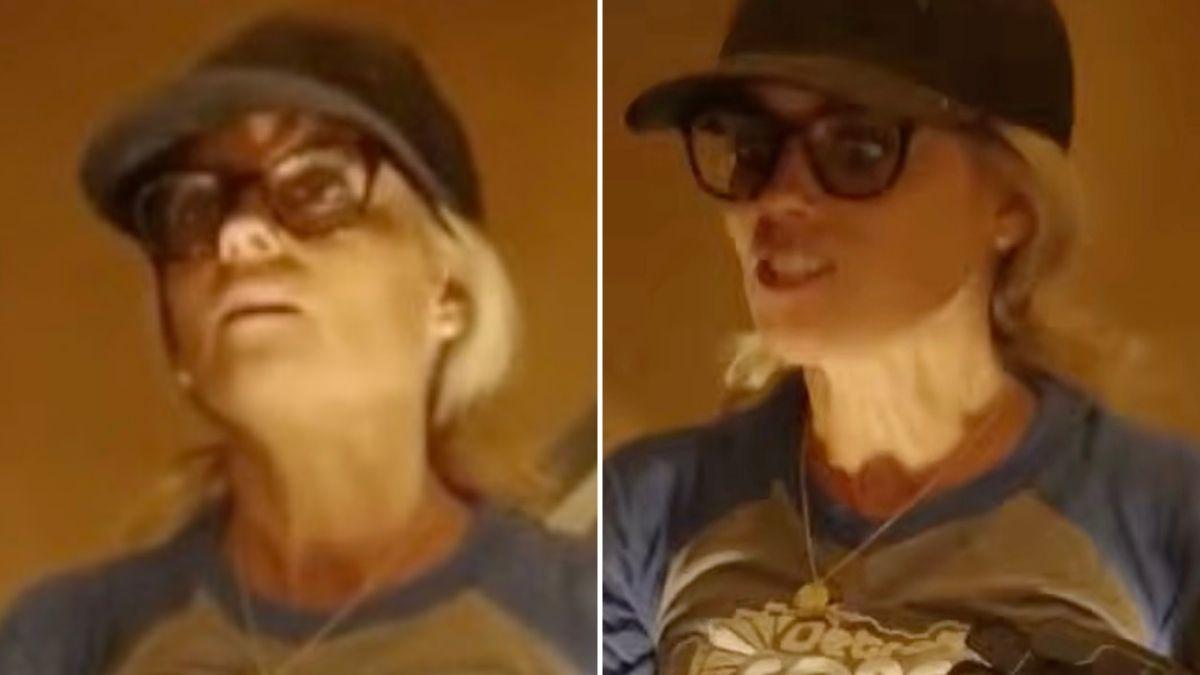Donald Trump Could Sue Over Naked Statue with VERY Tiny Penis After Flabby 43ft Erection Shocks Vegas
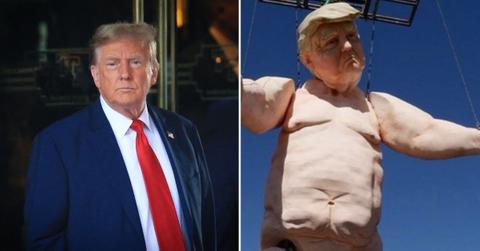
The 43-foot artwork, which some might describe as ‘anatomically correct,’ is far enough from a busy interstate to avoid causing backups or accidents.
Oct. 1 2024, Published 5:02 p.m. ET
A giant 43-foot naked statue of Donald Trump was seen hanging from a crane in Las Vegas over the weekend – but can the former president sue the creators?
RadarOnline.com can reveal that the flabby carving, which portrays the former president with a miniscule manhood, is part of an art exhibit called 'Crooked and Obscene'.
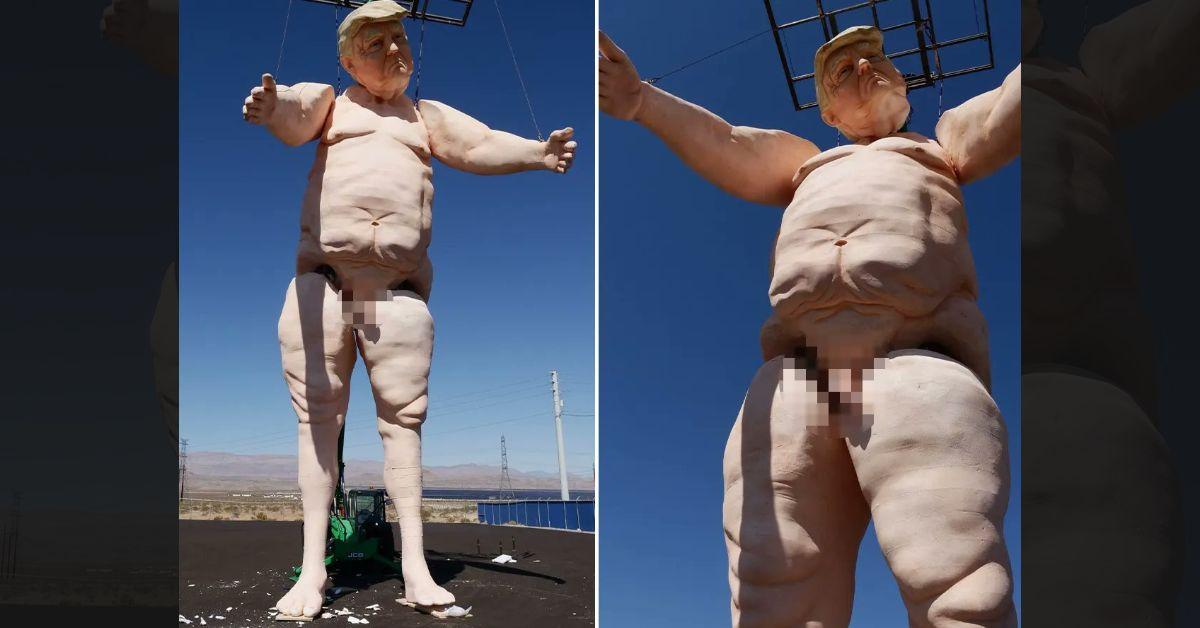
The stripped-down statue of Donald Trump is located just miles away from the famed Las Vegas Strip.
Its creators describe it as a commentary on transparency in politics, intending to provoke dialogue about political power and public figures. However, the statue has been met with fierce opposition, particularly from Nevada Republicans who called it "pornographic" and accused Democrats of supporting shock value over substance.
Despite these allegations, there’s no evidence connecting the Nevada Democratic Party to the statue's installation, the Washington Examiner reported.
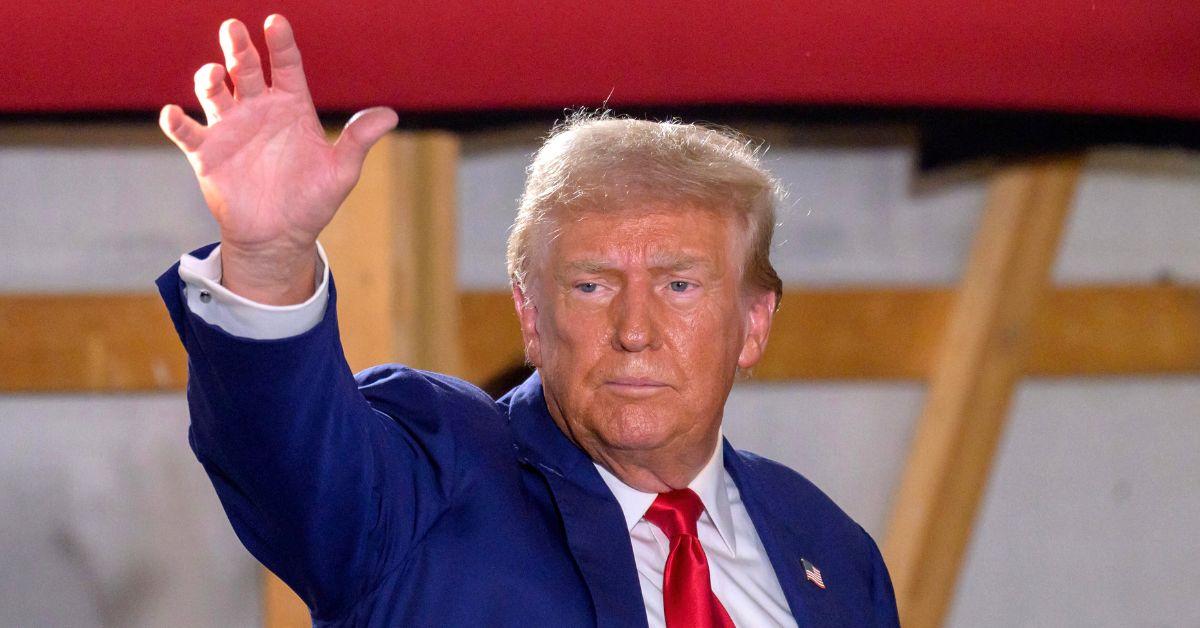
The statue of the former president was displayed about 30 miles from his hotel on the Las Vegas Strip.
As quickly as the statue went up, it was just as rapidly brought down following an uproar on social media and criticism from conservative commentators.
While some praised the statue for its provocative artistic message, others saw it as an attack on Trump, igniting a broader debate on the role of political art in public spaces.
The nude Donald Trump statue appeared outside of Las Vegas on Sunday, September 29.
One key question raised in the aftermath of this controversial display is whether Donald Trump could pursue legal action against the creators of the statue.
In the past, a similar case occurred with artist collective Indecline, which erected smaller naked Trump statues in various cities during his presidency. Although defamation laws exist to protect individuals from reputational harm, Trump would likely face legal challenges if he tried to sue.
For a defamation lawsuit to succeed, the depiction would need to be proven false and damaging to Trump's reputation. However, public figures like Trump are afforded less protection under U.S. defamation laws due to the First Amendment, which protects freedom of speech and artistic expression.
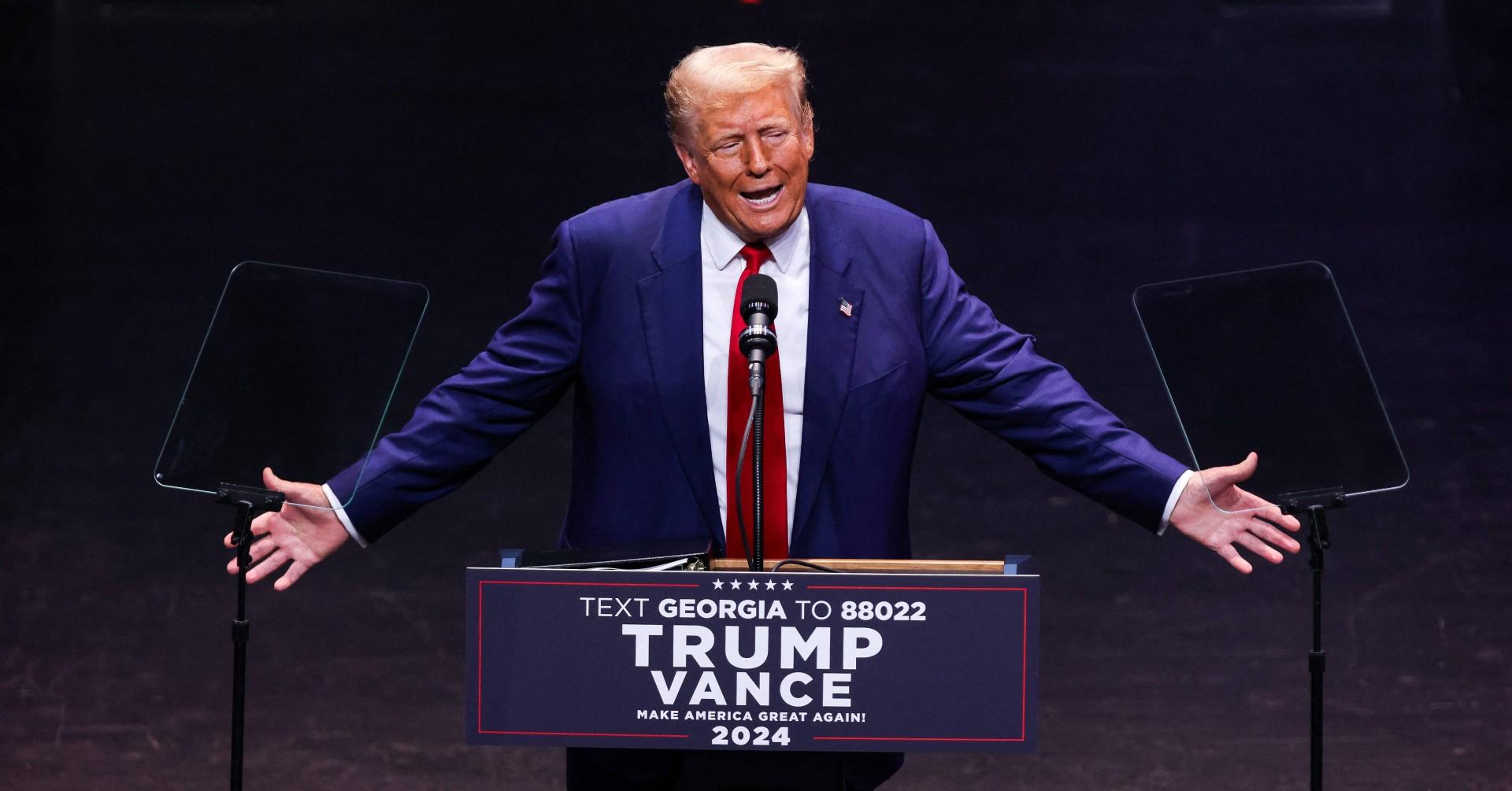
Social media had a lot to say about the statue.
In cases like this, courts often distinguish between satire, parody and legitimate defamation. The Supreme Court has historically sided with artists and commentators in similar situations, ruling that public figures must demonstrate "actual malice" to succeed in defamation claims.
In this case, the naked Trump statue could be considered satirical, which would fall under protected speech. In addition, the statute's creators explicitly stated their intention to provoke thought, not to defame Trump.
Legal experts also point out that defamation claims related to artistic works face an uphill battle due to their subjective nature. Courts typically interpret satire and parody as exaggerated or humorous commentary, making it difficult for public figures to claim tangible harm.

The statue's provocative nature may push boundaries, but its creators are unlikely to face legal consequences, as the artwork is intended to inspire political discourse rather than inflict reputational damage.
Ultimately, while the giant Trump statue has sparked controversy and anger, any legal action against the creators would face significant hurdles. The U.S. legal system has historically provided broad protections for political speech, especially when it involves public figures like Trump.
In this case, the statue's creators are more likely to be shielded by the First Amendment, with the statue viewed as a form of political commentary rather than defamation. As such, Trump very well could sue the artists, but he may find it difficult to mount a successful lawsuit against those responsible for the controversial display.
Have a tip? Send it to us! Email RadarOnline.com at tips@radaronline.com.


